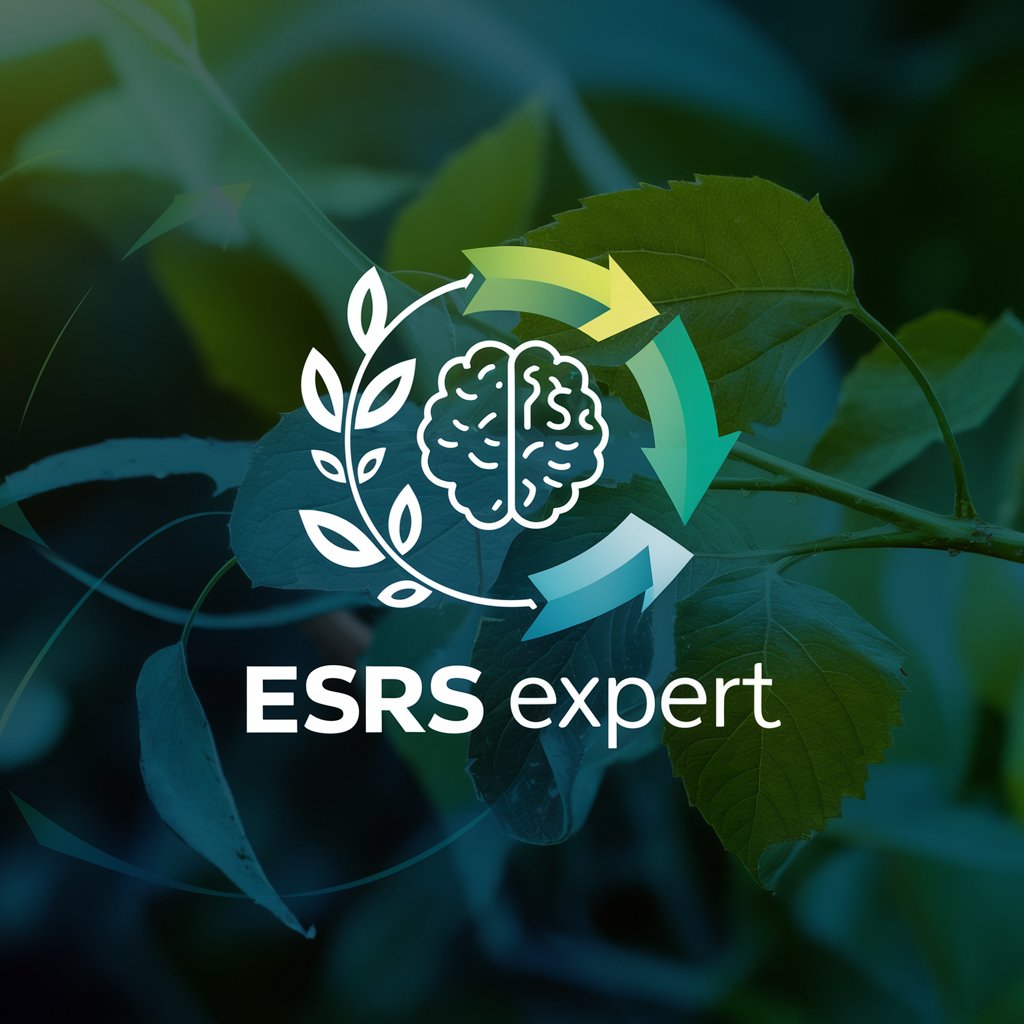4 GPTs for ESG Analysis Powered by AI for Free of 2026
AI GPTs for ESG Analysis are advanced artificial intelligence tools based on Generative Pre-trained Transformers technology, specifically designed to address and analyze Environmental, Social, and Governance (ESG) criteria. These tools leverage natural language processing to understand, interpret, and generate insights on ESG data, enabling businesses and investors to make informed decisions that align with sustainability and ethical practices. By integrating GPTs into ESG analysis, organizations can benefit from tailored solutions that enhance their understanding of complex ESG issues, streamline reporting, and support sustainable investment strategies.
Top 4 GPTs for ESG Analysis are: ESRS Expert,AI×ESG×ASMV 智慧永續先進移動,ImpactBot,サステナさん
Distinctive Features of AI GPTs in ESG Analysis
AI GPTs for ESG Analysis stand out due to their adaptability across various ESG-related tasks, from data collection to insight generation. These tools offer natural language understanding, which allows them to process vast amounts of unstructured ESG data efficiently. Special features include the ability to learn from ESG-specific datasets, provide technical support through automated troubleshooting, execute web searches for real-time ESG news analysis, create relevant visual content for reports, and perform detailed data analysis. Such capabilities ensure that GPTs can be customized for both straightforward and intricate ESG analytical tasks.
Who Benefits from AI GPTs in ESG Analysis
The primary users of AI GPTs for ESG Analysis include ESG novices, developers, and professionals who seek to integrate advanced AI capabilities into their ESG evaluation processes. These tools are designed to be accessible to individuals without programming skills, offering intuitive interfaces and pre-built models. Simultaneously, they provide extensive customization options for users with coding expertise, making it an invaluable asset for a wide range of stakeholders in the ESG ecosystem.
Try Our other AI GPTs tools for Free
Upscale Recommendations
Discover AI GPTs for upscale recommendations: tailor-made AI solutions designed to elevate your decision-making with personalized, luxury suggestions.
Exercise Motivation
Discover how AI GPTs for Exercise Motivation can transform your fitness journey with personalized workouts, motivational support, and holistic wellness advice.
Hydration Tips
Discover how AI GPTs for Hydration Tips can transform your water intake with personalized, data-driven advice for optimal health and performance.
Tropical Agriculture
Explore how AI GPTs are revolutionizing tropical agriculture with tailored solutions for crop management, pest control, and yield optimization, accessible to both novices and professionals.
Screenwriting Help
Discover AI GPTs for Screenwriting Help, your AI-powered assistant for crafting compelling screenplays. Streamline your writing process with tailored suggestions, automated formatting, and creative insights.
Hobby Coding
Explore AI GPTs for Hobby Coding: your gateway to simplified coding, from learning new languages to enhancing projects with AI-driven insights. Perfect for hobbyists and professionals alike.
Leveraging AI GPTs for Sector-Specific ESG Solutions
AI GPTs offer the flexibility to be adapted for sector-specific ESG analysis, providing customized solutions across industries. Their user-friendly interfaces facilitate easy integration with existing systems or workflows, enhancing ESG reporting and decision-making processes. By leveraging AI GPTs, organizations can not only comply with ESG standards but also drive innovation and sustainability in their sector.
Frequently Asked Questions
What is ESG Analysis?
ESG Analysis involves evaluating companies based on their Environmental, Social, and Governance practices to determine their sustainability and ethical impact.
How do AI GPTs enhance ESG Analysis?
AI GPTs enhance ESG Analysis by providing deep insights through natural language processing, making sense of large datasets, and offering tailored reports and recommendations.
Can non-technical users utilize AI GPTs for ESG Analysis?
Yes, AI GPTs are designed with user-friendly interfaces that allow non-technical users to leverage advanced ESG analysis without requiring programming knowledge.
How customizable are AI GPTs for specific ESG needs?
AI GPTs offer extensive customization options, allowing users to tailor the tools to specific ESG criteria, sectors, or analytical depths.
What kind of data can AI GPTs process for ESG Analysis?
AI GPTs can process a wide range of data, including corporate reports, news articles, social media content, and scientific research, to provide comprehensive ESG insights.
How do AI GPTs stay updated with ESG trends?
AI GPTs continuously learn from new data, enabling them to stay updated with the latest ESG trends, regulations, and best practices.
Can AI GPTs predict ESG compliance risks?
AI GPTs can analyze patterns and trends in ESG data to identify potential compliance risks and suggest mitigation strategies.
Are AI GPTs capable of generating ESG reports?
Yes, AI GPTs can generate detailed ESG reports, summarizing an organization's sustainability performance and highlighting areas for improvement.



